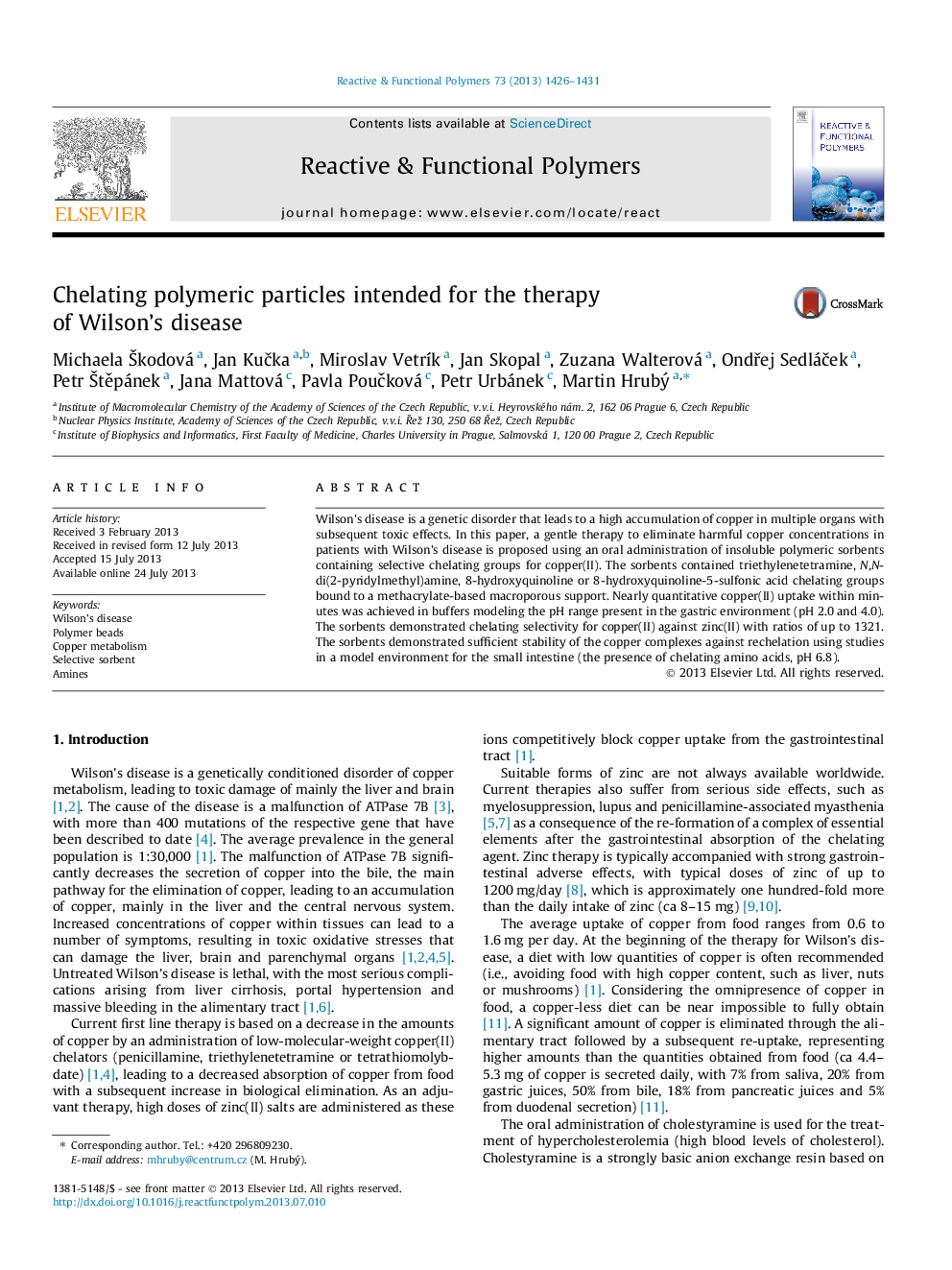| Article ID | Journal | Published Year | Pages | File Type |
|---|---|---|---|---|
| 5209975 | Reactive and Functional Polymers | 2013 | 6 Pages |
Wilson's disease is a genetic disorder that leads to a high accumulation of copper in multiple organs with subsequent toxic effects. In this paper, a gentle therapy to eliminate harmful copper concentrations in patients with Wilson's disease is proposed using an oral administration of insoluble polymeric sorbents containing selective chelating groups for copper(II). The sorbents contained triethylenetetramine, N,N-di(2-pyridylmethyl)amine, 8-hydroxyquinoline or 8-hydroxyquinoline-5-sulfonic acid chelating groups bound to a methacrylate-based macroporous support. Nearly quantitative copper(II) uptake within minutes was achieved in buffers modeling the pH range present in the gastric environment (pH 2.0 and 4.0). The sorbents demonstrated chelating selectivity for copper(II) against zinc(II) with ratios of up to 1321. The sorbents demonstrated sufficient stability of the copper complexes against rechelation using studies in a model environment for the small intestine (the presence of chelating amino acids, pH 6.8).
